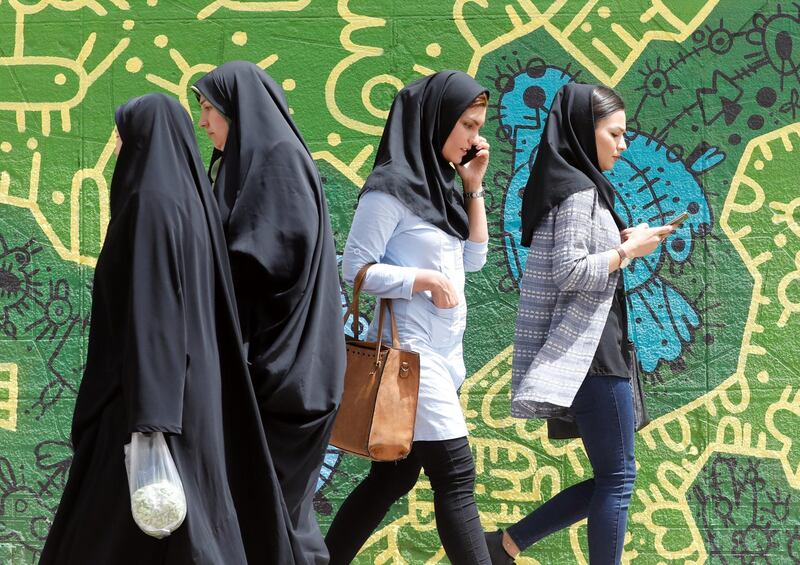Iranian President Hassan Rouhani is criticising the blocking of the popular Telegram messaging app in the country, suggesting those "at the highest level" in the country shut off access.
Mr Rouhani did not elaborate in his online comments late on Friday but they seem aimed at redirecting domestic anger over the blocking of the app, believed to be used by half of Iran's 80 million people. The app was crucial in fanning nationwide protests in December and January.
Authorities temporarily blocked the app to calm the demonstrations, but Iran's judiciary on Monday ordered internet service providers to block access to the app. Since then, users largely have not been able to access it.
Tehran's prosecutor also ordered Telegram be blocked in a way that would not allow users to bypass the restrictions using a virtual private network or other means. Computer-savvy Iranians routinely use such VPNs to get around online restrictions in the country to use Facebook, Twitter and other prohibited sites.
_________________
Read more
Iran blocks Telegram messaging app after Russian enforced similar ban
Rouhani slams officials' 'vow of silence' in face of protests
_________________
In a post on photo-sharing app Instagram, which is not blocked in Iran, Mr Rouhani wrote: "No social network or messenger were blocked 'by this government' and won't be blocked."
"If at the highest level of the system a decision has been made to restrict or block the people's communications, the real owners of this country, which are the people, should be aware of this," Mr Rouhani added.
The semi-official ISNA news agency also reported his remarks.
Telegram allows users to send text messages, pictures and video over the internet. The service touts itself as being highly encrypted and allows users to set their messages to "self-destruct" after a certain period, making it a favourite among activists and others concerned about their privacy.
The head of Iran's parliamentary committee on national security and foreign policy, Alaeddin Boroujerdi, said last month Telegram would be blocked. Iranian authorities have been trying to convince the country to use indigenously made messaging apps instead, though activists worry those programme likely can be monitored by the government.
Mr Boroujerdi also said the decision to block the app was a response to what he called Telegram's destructive role in anti-government protests that began in late December. The protests saw at least 25 people killed and nearly 5,000 reportedly arrested.





